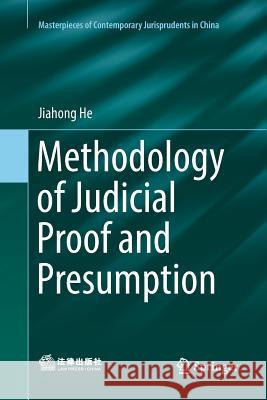Methodology of Judicial Proof and Presumption » książka
topmenu
Methodology of Judicial Proof and Presumption
ISBN-13: 9789811356919 / Angielski / Miękka / 2019 / 280 str.
Kategorie:
Kategorie BISAC:
Wydawca:
Springer
Seria wydawnicza:
Język:
Angielski
ISBN-13:
9789811356919
Rok wydania:
2019
Wydanie:
Softcover Repri
Ilość stron:
280
Waga:
0.43 kg
Wymiary:
23.39 x 15.6 x 1.63
Oprawa:
Miękka
Wolumenów:
01
Dodatkowe informacje:
Wydanie ilustrowane











